First Reported Amish Coronavirus Death
An elderly Amish man with COVID-19 has died in LaGrange County, Indiana. This is the first Amish death associated with coronavirus that I have seen publicly confirmed. Like many of the disease’s victims, this man had other health conditions. From the Fort Wayne Journal Gazette:
LaGrange County Commissioner Larry Miller said the county’s one death was an 80-year-old Amish man with underlying health conditions. He said northeast Indiana has a safety committee for the Amish community and LaGrange County has a separate steering committee of Amish to try to deal with issues across the wide number of churches.
“I keep in contact with the bishops and the safety committee,” Miller said. “I get questions daily and asking for updates so they can spread the word. Word travels very, very fast in the Amish.”
Word of an Amishman’s passing connected with COVID-19 had been out there for about a week, but this is the first public report I’ve seen confirming it.
Condolences to this man’s family.
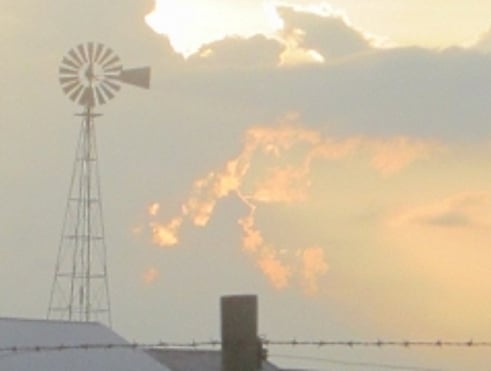
This is the Amish community which at least initially decided to move forward with each church district deciding whether to hold church services, as reported in a story back on March 22.
Later information from one of our readers in that community suggested that most churches were in fact not meeting. LaGrange County Commissioner Larry Miller also states in this report that “Church is a big deal in the Amish community and they are not having church.”
I have not seen any other public reports of Amish deaths associated with COVID-19.
Other Amish cases?
There are some unconfirmed reports of cases of COVID-19 in other Amish communities. Its appearance among the Amish was not unexpected, given how contagious this virus is supposed to be.
Adams County, Indiana is mentioned as one possibility in this same report, where test results of two cases are awaited. Health Officer Dr. Michael Ainsworth provides an update on mitigation efforts in his county:
So far, the Adams County Health Department has sent two letters to all the bishops and the churches with guidance on schools, hand-washing, gatherings and state orders.
Ainsworth said sheriff’s officers initially had to break up a few school and church gatherings – providing them with education on why it wasn’t appropriate. But since then there have been good feedback and cooperation from the Amish community.
“I don’t think they are a whole lot unlike us English. Twenty percent do whatever they want, and the remainder are receptive and change their behavior,” he said.
I hadn’t seen any reports on this area until this one. Adams County is home to the fifth-largest Amish settlement (about 10,000 people).




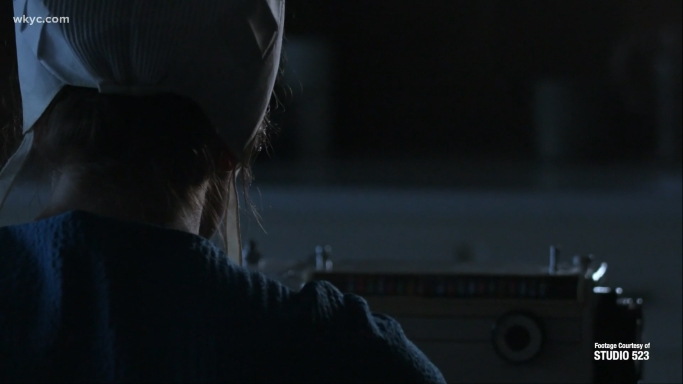
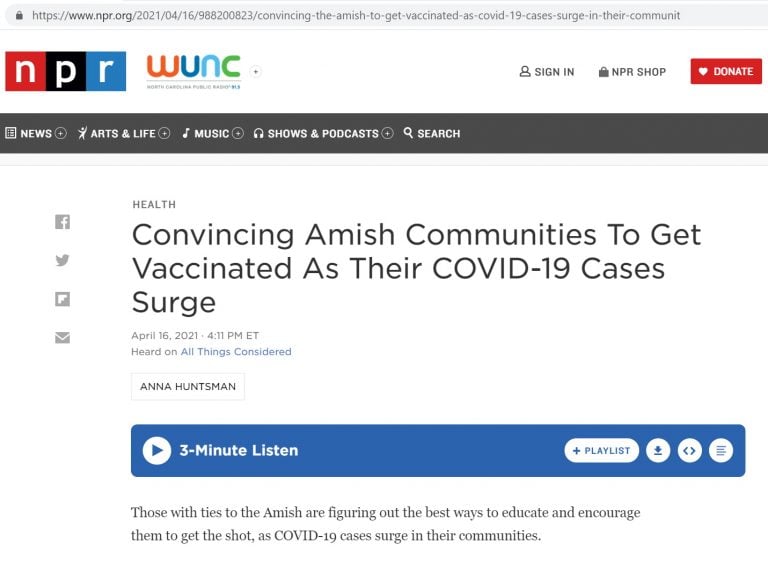
![COVID-19: Amish Schools Close; Church & Weddings Continue [UPDATED]](https://amishamerica.com/images/amish-wedding-new-holland-pennsylvania.jpg)
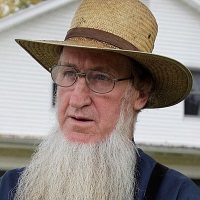
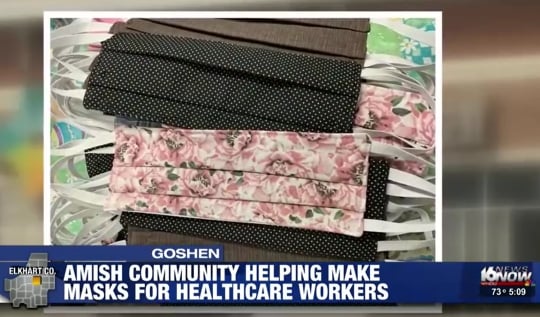
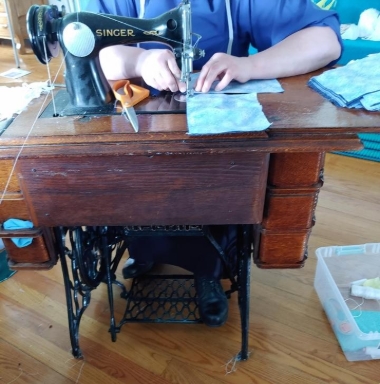
I extend my deepest sympathies to his family and friends.
“And I heard a voice from heaven saying unto me, Write, Blessed are the dead which die in the Lord from henceforth: Yea, saith the Spirit, that they may rest from their labours; and their works do follow them. ~ Revelation 14:13
Amish COVID-19 death in Adams County, Indiana
Andrew Stutzman, age 62, of Monroe, IN died April 7, 2020 in Adams Memorial Hospital, Decatur, IN of COVID-19. The Berne Witness, Berne, IN Monday, April 13, 2020
Adams County COVID-19 death
Thanks, Max.
So the obit in that paper states he was Amish but doesn’t mention cause of death: https://bernewitness.com/obituaries/andrew-stutzman
But there is another article in the same paper, on a man the same age going to hospital a week or so ago and passing away with COVID-19 (behind a paywall so I can only read the headline and first line or two):
https://bernewitness.com/news/county-suffers-first-death-from-covid-19
So those two are quite possibly the same person. Do you happen to know of a public source confirming that?
Amish COVID-19 death in Adams County, Indiana
The only official way is to get a death certificate from the Courthouse.
CDC guidance changed to include "probable" and "presumed" cases
Okay, thanks. In related news the CDC is now advising to include “probable” and “presumed” cases in COVID-19 totals, even if not confirmed by a test.
Maybe there is some practial rationale to that, but it seems it would complicate rather than clarify understanding of the impact of this virus. At the least, hurt public confidence in the numbers.
I could only find this article about it, not sure why that’s not being more widely reported: https://edition.cnn.com/2020/04/15/health/us-coronavirus-deaths-trends-wednesday/index.html
Here’s the actual guidance now:
https://www.cdc.gov/nchs/data/nvss/vsrg/vsrg03-508.pdf?fbclid=IwAR0RMoMihgt8aiQNHcgozEBnT4esBVJ3WfmPVcTr3UaK98z9FD_Rx889_h8
And the relevant bit:
“In cases where a definite diagnosis of COVID–19 cannot
be made, but it is suspected or likely (e.g., the circumstances
are compelling within a reasonable degree of certainty), it
is acceptable to report COVID–19 on a death certificate as
“probable” or “presumed.” In these instances, certifiers should
use their best clinical judgement in determining if a COVID–19
infection was likely. However, please note that testing for
COVID–19 should be conducted whenever possible.”
Dying without being tested
Weighing in on your remark about “maybe there is some practical rationale” to add deaths of people who were not tested but presumed died from the coronavirus, but “it seems it would complicate rather than clarify understanding of the impact of this virus. At the least, hurt public confidence in the numbers.” The problem is not everyone can get tested. People are trying and being turned away. I know this for a fact. For those who didn’t see my post on a different discussion, I’m in NY. My husband is probably sick with it now. He’s running a fever, goes between being very hot or having chills, has a persistent dry cough, a severe headache, and extreme exhaustion. My daughter’s fiancé’s parents were running 103 fevers with the dry cough, unable to eat, tired, etc. They tried to go to a testing site and were told they were not sick enough. They tried three times to get tested because their fevers kept spiking. So even though they say go get tested, the tests are only being used on those who are the most sick. That leaves a lot of people who very likely have the virus who are dying but were never tested. People are dying in the hospitals before they can get tested and people are dying alone at home who were either too sick to get someplace to get tested or who were turned away because they were not sick enough at the time. Maybe there is unlimited availability of tests wherever you are, but not here. Anyway, I would think doctors are perfectly capable of looking at someone and determining if they had the virus whether they were tested or not. They’re not testing dead people — why waste a test — so the best they can do is for the doctor to say yes, that person probably died of the virus. And the other statistic is to look back over how many people died per day in previous years and look at the number of deaths now. NY police are pulling dead bodies out of homes by the hundreds. Quoted from NPR on April 8th “Over the last two weeks, the [NY] city’s fire officials said more than 2,192 New York City residents died in their homes, compared to 453 during the same time period last year.” Therefore they are presuming that a good portion of the approx. 1,700 difference was due to the coronavirus. They are determining what symptoms the person died of and then adding them to the death count if it seemed like Covid-19..
To not add those undetermined deaths in would make this virus seem less deadly than it is. And that would be worse.
I have to respectfully disagree with your concluding statement.
Going in the other direction, if we make it seem *more* deadly than it is, there is another bad effect, one that’s probably more deadly, but harder for us to immediately see.
That would be economic-related deaths due to going too far with our shutdowns – including deaths of despair (ODs and suicides), delayed diagnoses and treatments of cancer and other diseases that it’s important to treat early/regularly (because people are avoiding hospitals now due to the wrong perception that they are all overwhelmed by COVID patients), and maybe most insidious, the poverty-exacerbated deaths in the 3rd world that we’ll never hear much if anything about.
Accurate data contributes to the decision of how tightly to keep things locked down. I believe this is a discussion not in terms of money vs. lives, but in lives vs. lives.
New York is by far the worst-hit area of the country, in part due to unique aspects of the city. And it’s gotten the most coverage, understandably. All that aside, I do hope you can get tested, and I’m sorry to hear that your family members are possibly ill with it, I really am.
Georgianne, I’m so sorry to hear about your situation. I hope very much you and yours are helped through this very difficult time as much as possible. I’m praying for you.
Too little too late?
I’m not sure if my first post today went through, so here’s the gist of it.
Good luck to Dr. Morton getting the word out to the Amish about COVID-19. I wish him and then well.
How were the Amish affected in the 1918 flu pandemic? Since they (I assume) were even more “isolated” back then, were they somewhat more ” protected”? On
I hope we all survive this smarter, stronger, and kinder. Good luck to everyone.
Alice Mary
That’s an interesting question Alice Mary. I don’t know the answer to that. If I come across some info I’ll circle back and share here.
On a related note I did happen to read this today, on past polio outbreaks, which sounded truly scary if you were living through one. https://www.patheos.com/blogs/anxiousbench/2020/04/polio-christians-vaccination/
It references the Amish, who’ve been involved in some of the last outbreaks in the US. I also learned that the Netherlands has its own “Bible Belt”:
‘It started in 1978, in the Bible Belt of the Netherlands. According to polio historian Gareth Williams, only 60% of the quarter-million members of that country’s Orthodox Protestant churches had been vaccinated for polio, smallpox, and other infectious diseases (compared to 97% of the overall population). Viewing vaccination as interference with divine providence, tens of thousands of conservative Dutch Christian families depended on herd immunity. Over the course of seven months in 1978, 110 of their children were paralyzed by polio.
Worse yet, cross-Atlantic visits brought the same disease to unvaccinated Dutch Reformed enclaves in Canada. From there it spread to a different American Christian population that had always been somewhat suspicious of government-sponsored vaccination initiatives: the Amish, fourteen of whom suffered paralysis from polio in 1979.
Objections to vaccinations didn’t disappear from either group, but opposition did soften. As early as July 1979 the CDC estimated that the majority of America’s Amish had taken at least one dose of Sabin’s live-virus vaccine. By the start of the 1980s, the United States had been declared polio-free.
More than seventy more unvaccinated Dutch children contracted polio in 1992-1993, and there was a small flare-up of the disease in a Minnesota Amish community in 2005. But that last incident was quickly traced back to an immunocompromised infant who had been exposed to the live form of a polio virus still used in Sabin’s oral vaccine — most likely via someone who had been vaccinated somewhere outside of North America.’
Dutch Bible belt
Being from a Dutch born Family, this “Dutch Bible belt” and vaccine refusal is news to me, perhaps because my family was not with the reformed church. Regarding vaccines, particularly polio, the record of success and failure is not unblemished or simple and vaccine refusal is not necessarily driven by religion as seems implied. Religion may explain Amish failure to vaccinate, but many have legitimate scientific questions, issues, and concerns about safety and effectiveness and those issues are not resolved to everyone’s assurance.
Elkhart County coronavirus response team set up for Amish
Elkhart County (the other major county in this settlement, bordering LaGrange Co.) has set up a response team catering to the Amish population:
https://wsbt.com/news/local/elkhart-county-coronavirus-response-team-sets-up-one-stop-clinics-to-serve-amish
‘Elkhart County formed a coronavirus response team, which is reaching out to its large Amish population.
The group, made up of mayors, county officials and first responders found a way to develop a one-stop shop where the Amish can go for for answers to their concerns about the virus.
“So what we want to do is set up a location in Wakarusa, Middlebury, Nappanee and Millersburg, where we have this one stop shop,” said Jennifer Tobey.
Two are already in place, one in Wakarusa and another in Middlebury.
Amish can make their way in a buggy through a drive-through clinic like the one ion Wakarusa.
All this was made possible through a partnership with Elkhart General Hospital.
“And [they can] receive any type of information that they would like on COVID-19, there will be individuals that are there that can answer any questions that they have,” said Tobey.
But the clinic can handle more than that.
“And should they have signs or symptoms or need to see a physician, we will have that on site in a separate trailer,” said Tobey. “The idea is they go one place and get everything they are asking for.”
A similar set up will be in place in Nappanee and Millersburg by next week.’